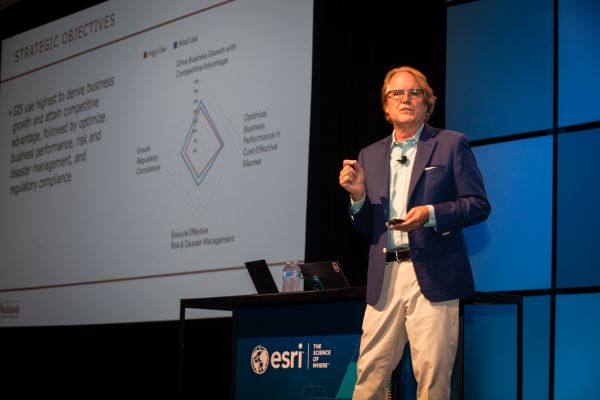University of Redlands Emergency Alert System
Alert Received: . For more information, visit: https://www.redlands.edu/alert/
University of Redlands
- Home
- Master the Business of "Where"
Learn More About How You Can Further Your Knowledge in Location Analytics
Every industry needs talent with the skills to gather, analyze and make meaning from information to help companies make strategic business decisions. The hottest sub-area of data analytics is information stemming from geospatial data. This focused area of information is expected to double by 2023, and there remains a greater demand for qualified candidates than actual candidates.


Thomas Horan, Dean of the School of Business, presenting at the 2018 Esri User Conference in San Diego, CA.